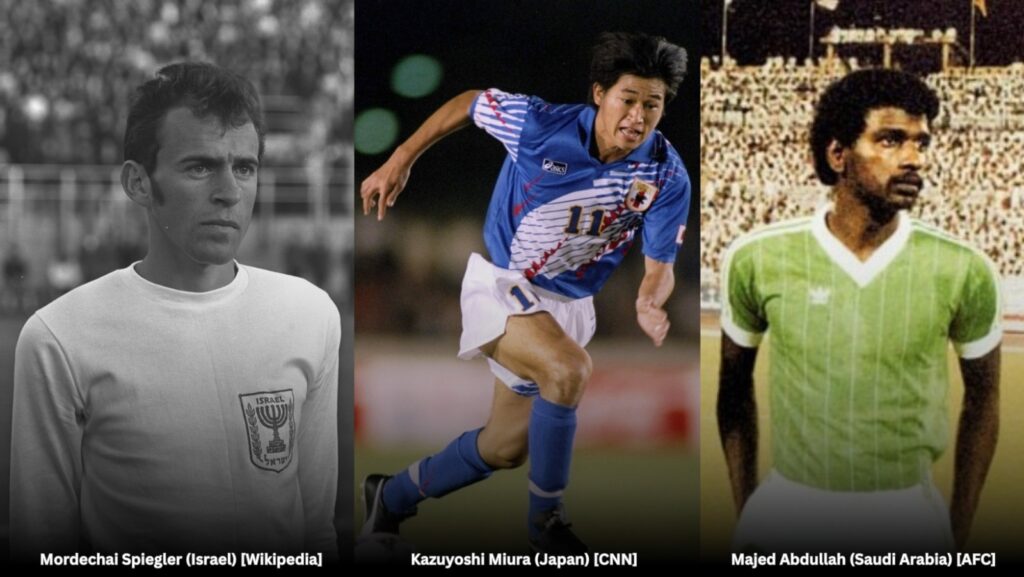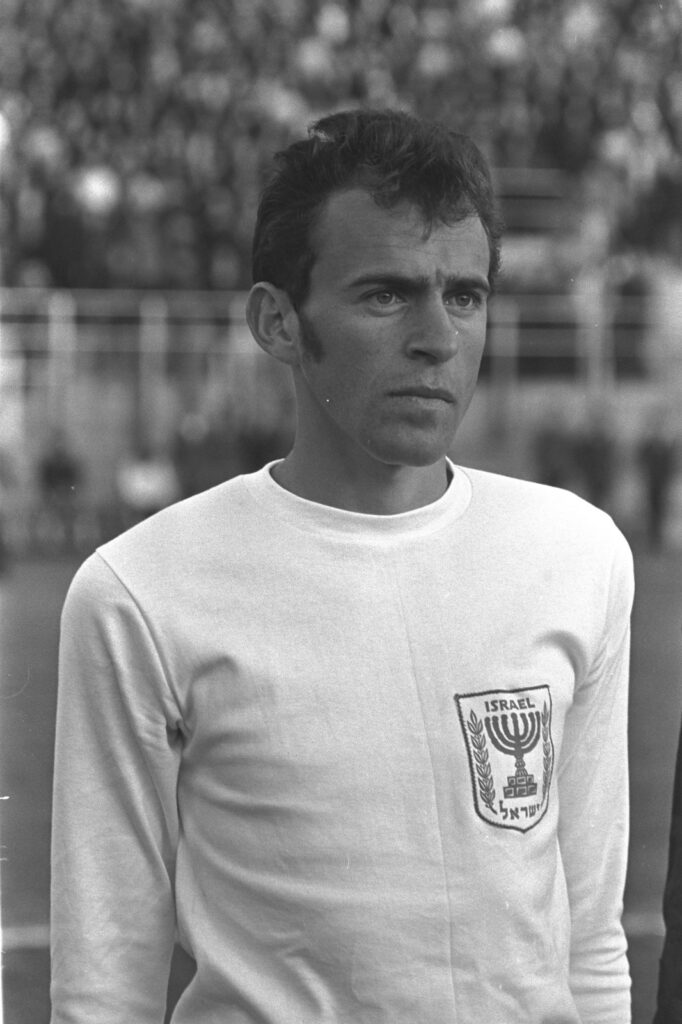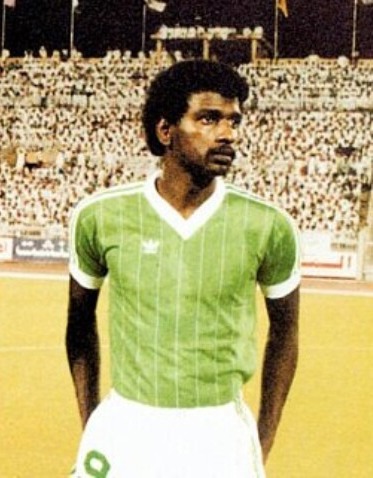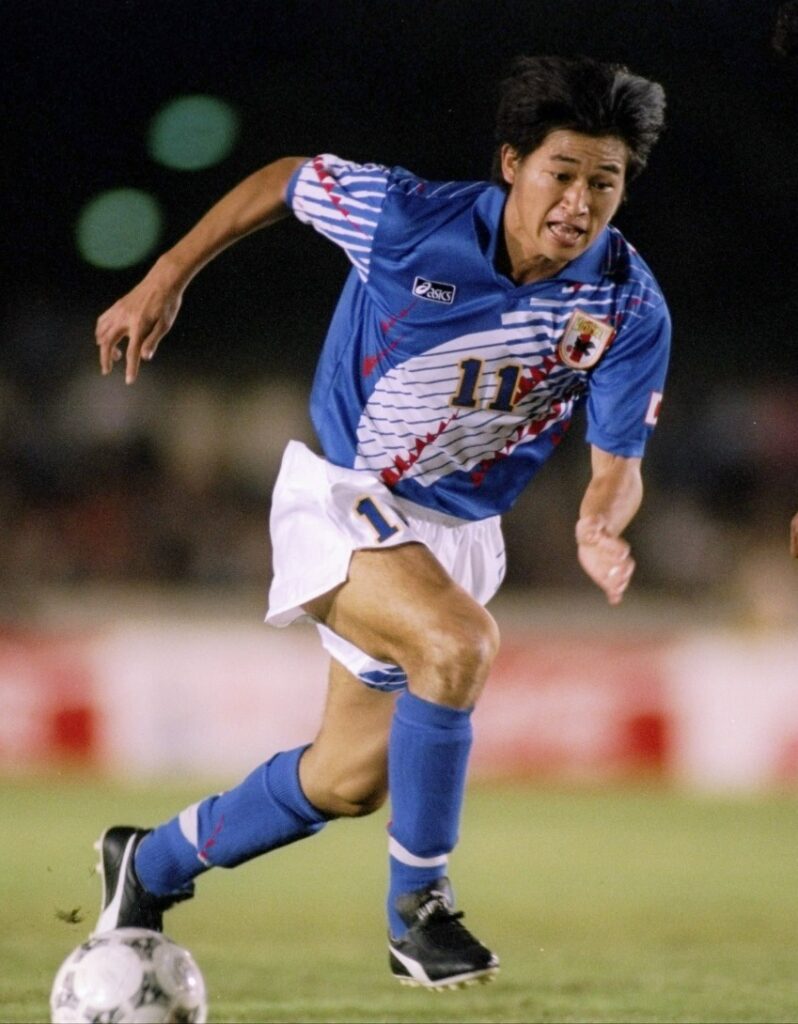
The 2023 AFC Asian Cup kicks off in Doha on January 12. From South Korea’s Son Heung-min and Kim Min-jae to Japan’s Wataru Endo and Daizen Maeda, there will be plenty of high-profile names on view in Qatar. Here, we look at some of those who illuminated earlier editions of the competition. Part two will appear tomorrow.
Mordechai Spiegler (Israel)
Because of global politics, this is a name that has largely been airbrushed out of Asian Cup history. Yet, this wasn’t always the case. In their four appearances in the Asian Cup, until political schisms made it impossible for them to play most teams from the continent, Israel never finished lower than third. On home turf in 1964, they were winners. And it was a late goal from Spiegler against Hong Kong that sent them on their way.
Three days later, at the Bloomfield Stadium in Tel Aviv, an Indian team that had opened with a 2-0 win over South Korea on the day Jawaharlal Nehru passed away, played the most important game in their history in front of a crowd of 20,000. Again, Spiegler opened the scoring, from the penalty spot, and Yohai Aharoni’s goal four minutes from the end – the Asian Cup had 80-minute games back then – sealed the points for the hosts.

Spiegler’s goals against New Zealand and Australia clinched World Cup qualification for 1970, and on the big stage, he found the net in a 1-1 draw with Sweden. Though they couldn’t progress to the next round, Israel left Mexico after also having drawn with Italy, eventual finalists. More than half a century later, it remains their only World Cup appearance, while Spiegler has pride of place as his country’s lone goal-scorer.
In his 30s, the Russia-born Spiegler, who spent the best years of his career with Maccabi Netanya, would play a season with Pele at New York Cosmos.
Majed Abdullah (Saudi Arabia)
Long before Cristiano Ronaldo, Al-Nassr had Majed Abdullah. Born in Jeddah, but with Sudanese roots, Abdullah was the ‘Arabian Jewel’ of strikers in the 1980s. It was just a pity that his best years were long behind him by the time Saudi Arabia made it to their first World Cup in 1994. On the Asian stage, however, he would make decisive contributions.
Abdullah scored 72 goals in 117 games for Saudi. Few were as important as the 90th minute equaliser against South Korea in their first outing of the 1984 Asian Cup. He would add a second goal in the final against China.

Also Read: Farewell, Franz Beckenbauer – the Kaiser of Defenders
Kazuyoshi Miura (Japan)
Check half a decade from now, and you might still find Miura playing for a football team somewhere. Having gone to Brazil as a teenager in the 1980s to try and master the game, King Kazu is still learning four decades later. Nearly a quarter century has passed since the last of his 89 caps and 55 goals for the Blue Samurai, but the man who started the Japanese football revolution refuses to stop.
The list of Japanese football superstars in now a fairly lengthy one. Hidetoshi Nakata was the first to crack the code in Europe in the 1990s and early 2000s. Shunsuke Nakamura became a cult hero with Celtic in Glasgow, while Shinji Kagawa and Wataru Endo have played for the two teams that contest the biggest rivalry in English football – Manchester United and Liverpool. Keisuke Honda played for AC Milan. But before them all, there was Kazu, who made his name with Santos, Pele’s club, in Brazil, before moving back home and becoming the first homegrown superstar of the J.League.
For the national team, despite all those goals, Miura’s time was synonymous with agony. Failure to qualify in 1993 haunted a generation, most so their talisman, and despite Miura scoring 14 goals on the road to France in 1998, he was omitted from the final squad. The Blue Samurai went to their first World Cup without the ultimate warrior.

With the minutes ticking down against Iran at the Hiroshima Big Arch, the Iranians and the United Arab Emirates were poised to go through to the semi-finals. Japan had failed to beat the UAE and North Korea, and embarrassment loomed for a nation that was about to launch the J.League with much fanfare and an assortment of famous imports like Zico and Gary Lineker.
But in the 87th minute, Miura popped up with a winner that sent Iran out, and Japan through. China would be beaten 3-2 in a thrilling semi-final before the Saudis were seen off in the summit clash. Miura didn’t add to his one goal, but it was his skilful prompting, ability to bring others in play and set up chances that led to him being named the tournament’s Most Valuable Player (MVP). After nearly two decades of lower-tier play in Japan, Australia and Portugal, only he could tell you though if the memories of Hiroshima keep the demons of Doha at bay.
For Sports Related Information Click here



